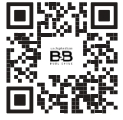
Board Releases Hypothetical Scenarios for Annual Stress Test
The Federal Reserve Board released the hypothetical scenarios for its annual stress test, which helps ensure that large banks can lend to households and businesses even in a severe recession.
Additionally, for the first time, the Board released four hypothetical elements designed to probe different risks through its “exploratory analysis” of the banking system. The exploratory analysis will not affect bank capital requirements.
The Board's annual stress test evaluates the resilience of large banks by estimating losses, net revenue and capital levels – which provide a cushion against losses – under hypothetical recession scenarios that extend two years into the future. This year, 32 banks will be tested against a severe global recession with heightened stress in both commercial and residential real estate markets, as well as in corporate debt markets. The scenarios are not forecasts and should not be interpreted as predictions of future economic conditions.
In the 2024 stress test scenario, the U.S. unemployment rate rises nearly 6.5% to a peak of 10%. The increase in the unemployment rate is accompanied by severe market volatility, a widening of corporate bond spreads and a collapse in asset prices, including a 36% decline in house prices and a 40% decline in commercial real estate prices. Large banks with substantial trading or custodial operations are also required to incorporate a counterparty default scenario component to estimate and report potential losses and capital effects associated with the unexpected default of the firm's largest counterparty.
In addition, banks with large trading operations will be tested against a global market shock component that primarily stresses their trading and related positions. The global market shock component is a set of hypothetical stresses to a large set of risk factors reflecting market distress and heightened uncertainty.
This year's exploratory analysis includes four separate hypothetical elements that will assess the resilience of the banking system to a wider range of risks. Two of the hypothetical elements include funding stresses that cause a rapid repricing of a large proportion of deposits at large banks. Each element has a different set of interest rates and economic conditions, including a moderate recession with increasing inflation and rising interest rates, and a severe global recession with high and persistent inflation and rising interest rates.
The other two elements of the exploratory analysis include two sets of market shocks that will be applied only to the largest and most complex banks. These shocks hypothesize the failure of five large hedge funds, with each under a different set of financial market conditions.
Those conditions include expectations of reduced global economic activity with a negative outlook for long-term inflation and expectations of severe recessions in the United States and other countries.
The exploratory analysis is distinct from the stress test and will explore additional hypothetical risks to the broader banking system, rather than focusing on firm-specific results. The Board will publish aggregate results alongside the annual stress test results in June 2024.

To view or share this content online, use this QR code.